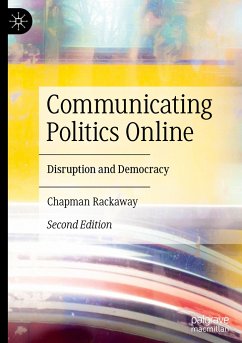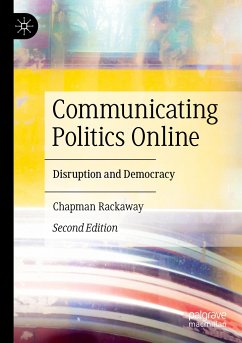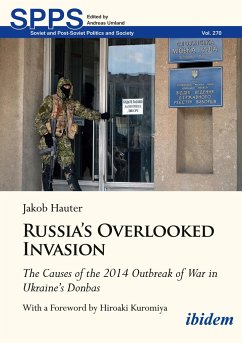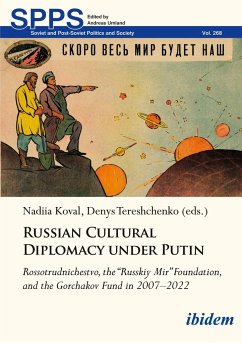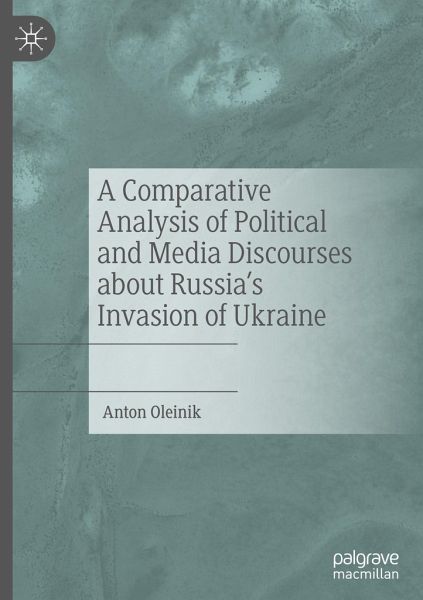
A Comparative Analysis of Political and Media Discourses about Russia's Invasion of Ukraine
Versandkostenfrei!
Versandfertig in 1-2 Wochen
104,99 €
inkl. MwSt.
Weitere Ausgaben:

PAYBACK Punkte
52 °P sammeln!
This book explores the discursive dimension of Russia's invasion of Ukraine. It analyzes how political leaders, mass media, social media, and ordinary people in Ukraine, Russia, the United States, the United Kingdom, and France discuss the war. War propaganda and counterpropaganda structure discourses about the invasion, strengthening post-truth conditions. The book highlights the consequences of the growing distrust in the institutional truth-teller, mass media. Russia's invasion of Ukraine is the first social media war. Social media became the principal source of information about the invasi...
This book explores the discursive dimension of Russia's invasion of Ukraine. It analyzes how political leaders, mass media, social media, and ordinary people in Ukraine, Russia, the United States, the United Kingdom, and France discuss the war. War propaganda and counterpropaganda structure discourses about the invasion, strengthening post-truth conditions. The book highlights the consequences of the growing distrust in the institutional truth-teller, mass media. Russia's invasion of Ukraine is the first social media war. Social media became the principal source of information about the invasion. The rise of digital media did not change the tendency of the discourses about war to be territorially segregated according to national boundaries. Nationalization of discourses about war continues to prevail over their globalization. The corpora containing more than 180 million words in four languages inform the analysis. The data was collected during the first year and a half of Russia'sall-out war in Ukraine.




